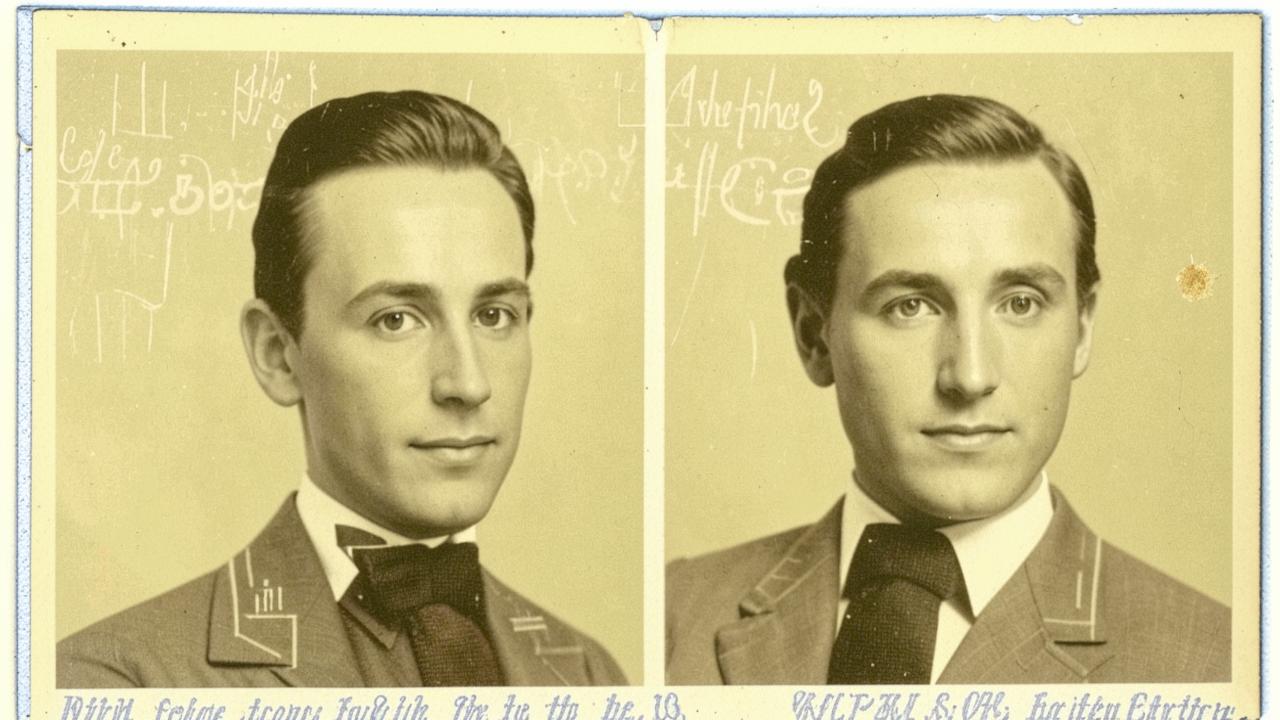“No shame, no conscience!” – we like to grumble when we’ve been insulted. But imagine a world where you really feel no guilt, no empathy, no compassion. A space of manipulation where the only goal is your own gain. Welcome to the world of people with sociopathy!

Psychologist, ACT-therapist, expert of the online school of psychological professions “Psychodemia”
“Of the whole mosaic of personalities, it is the ones around them that have the most speculation. One, hearing the word “sociopath”, will imagine a criminal, and another – a cold and charismatic billionaire. Who are people with sociopathy? By what traits can be identified and how to help them? Let’s get to the bottom of it.”
Who are sociopaths?
“A sociopath is a person with a dissocial (antisocial) personality disorder. According to different data, this ranges from 0.2 to 3.3% of the population. That is, about 1 in 50 people may have a dissocial disorder. Doesn’t seem like much. But given the number of people we encounter throughout our lives, the chances of meeting someone who has sociopathic traits are quite high. He could be an acquaintance, a neighbor. And there’s also a real chance of getting such a boss!
What is the difference between a sociopath and a psychopath?
In non-scientific circles, these terms are often confused. There are studies that link psychopathy to congenital (genetic) causes, and sociopathy – with the peculiarities of the environment and upbringing. However, the official classifications of diseases ICD-10 or DSM-V refer both concepts to dissociative personality disorder and do not make any watershed.
In ICD-10, which is used by psychiatrists in our country, it is described as follows: “A personality disorder characterized by disregard for social duties and callous indifference to others. Behavior is difficult to modify through experience, including punishment. Patients have a poor tolerance for failure and easily give in to aggression, including violence. They tend to blame others or give plausible explanations for their behavior, bringing them into conflict with society.”
Causes of sociopathy
The exact cause of dissociative disorder is unknown. As with other diseases, scientists are trying to determine what contributes the most – genetics or the environment in which a person grows up. The list of possible causes looks like this.
- Genetics. Studies show that some people may have a predisposition to sociopathy. In particular, changes in those brain structures that are responsible for attachment and empathy.
- Features of upbringing. In the risk zone – orphans who do not receive warmth and attention, as well as families where violence, abuse, manipulation are the order of the day. Such children grow up with the feeling that others do not care about them and can only count on themselves.
- Trauma or brain damage. Brain injuries or diseases such as dementia can lead to antisocial behavior. However, you can’t 100% call it a dissocial disorder. After all, it usually manifests itself already in childhood or adolescence.
What’s the bottom line? Yes, genes play a role. And some people with dissocial disorder really are “just that way”. However, in most cases, genes are just prerequisites. Like seeds that only germinate under certain conditions. For example, when children face regular physical or psychological abuse, coldness and neglect of their needs. Or in families with “hazing” and rigid hierarchy, when the strong get even with the weak.

Traits of a person with dissocial disorder
Diagnose antisocial personality disorder can only be diagnosed by a psychiatrist. And even he will not be easy, because all of us from time to time show selfishness and churlishness, can deceive or resort to manipulation. You don’t want to diagnose someone based on a photo. But there are still common traits that people with sociopathy share.
1. They lack empathy
It can be hard for people without a dissociative disorder to understand how this is possible, because empathy is natural. And not only for humans, but also for other mammals: elephants, rats, monkeys.
We have “mirror” neurons that allow us to at least remotely feel the emotions of another person. For example, when someone nearby burns or cuts his hand, we also instinctively flinch (imagining how painful it is). This is how empathy develops. Later, the biological component is superimposed on the ideas of morality and conscience.
People with dissociative disorder really have no remorse or fear of loss of attachment. People appear to them as objects like furniture. One is unlikely to empathize with a table when it is moved or a sausage is cut on it.

2. They can be charming if it’s profitable.
Clinical psychologist Martha Stout, in her book The Sociopath Next Door, refers to people with dissociative disorder as “people without conscience.” However, while sociopaths don’t feel guilt, shame, or compassion, that doesn’t mean at all that they are devoid of emotion. It’s just that the feelings are only centered around their own person.
They may feel sad if they didn’t get what they wanted, but are unable to understand another person’s sadness. Often as early as childhood or adolescence, they begin to notice that they are different from those around them. Therefore, intelligence and imitation skills come to the rescue – why not portray participation or interest in another if it helps them achieve their goals?
3- They know right and wrong, but they don’t care
For people with dissocial disorder, what is right is only what is in their best interest. If something is in their best interest, all means are good. They don’t know remorse. What stops them from breaking the law is not values, but the desire to avoid punishment. Unfortunately, not always. It is not surprising that people with sociopathy are often associated with robbers and swindlers.

4- They are prone to deception and manipulation
Indifference to other people’s suffering in a way unleashes people with dissociative disorder. They easily play on the feelings of others to achieve their goals.
5. They are incapable of creating deep relationships
People with dissocial disorder can be the soul of the company, get married and even have children (if they find it convenient for some reason). However, in reality, relationships with emotional intimacy and trust are not available to them. Or rather, they do not feel the need for such relationships.
6. They may behave impulsively or aggressively
Some people with sociopathy are cold and calculating. Others find it difficult to control irritation when someone or something goes against their will. They may also take risks without apparent fear or regret.
7. They have a hard time accepting defeat
It’s not just about being impulsive. What helps us to survive rejections and failures is the realization that the world does not revolve around us and there are other people – with their own wants and needs. Obviously, this understanding is far from the worldview of a sociopath.
How do you recognize a person with dissociative disorder?
The ICD-10 (International Classification of Diseases) describes dissocial personality disorder very briefly. More detailed criteria are in another classification – DSM-V:
- Disobeying laws and norms, committing illegal acts;
- deception and manipulation for self-interest;
- impulsive behavior;
- irritability and aggression;
- blatant disregard for safety, irresponsibility and lack of remorse for their actions.
There are other requirements: the diagnosis cannot be made until the age of 18, and the first signs must appear as early as childhood or adolescence.
Psychiatrists conduct a clinical interview, take into account family history, test data and questionnaires. For diagnosis they may use the Hare Control Test (PCL-R), the Psychopathy Identification Questionnaire (SRP-III), and various scales to measure empathy and antisocial behavior.

Consequences of Sociopathy
It is important to understand that antisocial personality disorder is not just a character or behavioral trait. It is a mental illness that causes harm not only to the person themselves, but also to those around them.
However, people with dissocial disorder are often not burdened by their peculiarities. Some are even proud, believing that it is much easier to live without empathy, affection and concern for others. However, sociopathy imposes an imprint on all areas of life. Let’s break down the main ones.
Personal life and friendships
Without deep affection, such people make relationships (friendly or romantic) only with those who are beneficial to them. Someone can be used for practical purposes – to write a test in physics, make a report or lend money.
Other people with dissociative disorder “mark” as intellectual, with a great sense of humor, strong, strong-willed. With them they can spend time and even build relationships that outwardly resemble friendship. For example, when communicating with such people, a person with sociopathy may utter words of comfort or help. Only the motivation will not be sincere concern, but a subtle calculation that the friend will also come to help in a difficult moment.

Work and professional life
In a professional environment, sociopathy can manifest itself in different ways. On the one hand, the skill of manipulation, indifference to colleagues and focus on achieving personal goals help to climb the career ladder. On the other hand, these same qualities prevent people with dissociative disorder from building long-term professional relationships.
And this only applies to people who are reserved. Those who suffer from impulsiveness and outbursts of aggression, it is difficult to stay in the workplace. People with sociopathy are also not enthusiastic about responsibility and often prefer to work for themselves – without bosses and subordinates.
Social relationships and delinquency
Dissocial personality disorder is stigmatized in society. Sociopaths are labeled as villains. One can understand where the notoriety comes from – when you feel indifference to the rights and lives of others, it is easier to cross the line of the law. The percentage of people with dissocial disorder among offenders is indeed higher than the population average (up to 20%, according to various sources). However, one cannot equate sociopaths with criminals.

Is there a cure?
Because science still knows little about this personality disorder, it is difficult to change. For one thing, people suffering from it themselves rarely seek psychological help. Usually, dissociative disorder is discovered when a person comes to a psychologist at the insistence of loved ones.
If the sociopath is willing to talk to a psychologist, the work may focus on understanding his or her state and reactions, anger management, developing impulse control, and behavior modification.
There is also no “cure for sociopathy.” A psychiatrist may prescribe medication to modify conditions that sometimes occur along with antisocial personality disorder. For example, anxiety or aggression. Nevertheless, therapy combined with medication can change the quality of life of sociopaths for the better.
Involuntary victims suffer much more: family, friends, partners. Recognizing a sociopath in advance is an almost impossible task, because at a “short distance” he is able to masterfully play out any emotion.
The partner of such a person can be trapped in his/her own hopes (“with me he/she will change for the better”), tolerate rudeness and humiliation. A sociopath will easily hit the most painful place without feeling any remorse. Therapy can help the partners and family members of people with dissociative disorder more than it can help the sociopaths themselves.
People with dissociative disorder are not evil. They just have peculiarities that prevent them from noticing other people’s pain, worrying about others, or feeling strong affection.
Ironically, it is the person with antisocial traits who is the type that is popular in today’s society. He really doesn’t depend on anyone emotionally, doesn’t have many fears or regrets, but it’s a life without sincerity or true love. Without warmth, joy or pride in another person. Without a sense of community and understanding.






